Can Glasgow ban all marches over sectarian fears?
- Published

A counter-protest on the Broomielaw as a Republican march was held in Glasgow on Saturday
Four Loyalist marches and one Irish Republican parade planned for this weekend have been been banned by Glasgow City Council over the threat to public safety and the likelihood of widespread disorder. Can Glasgow now ban all marches over sectarian fears?
If the people of Glasgow were given a vote on the future of Loyalist and Irish Republican marches in the city, the majority would ban them, according to SNP MSP John Mason.
His assertion has not been tested in any reliable poll but it is clear many people have had enough of the sectarian disorder that too often comes with the marches.
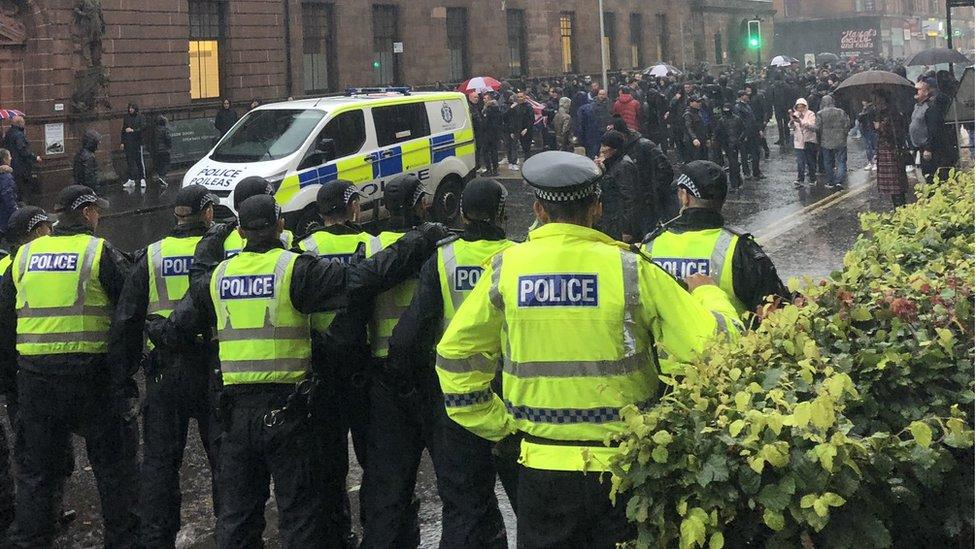
There was a huge police presence for last week's parades
Justice Secretary Humza Yousaf said it was depressing to be asked to legislate for disorder committed by grown men "fighting battles of centuries gone by".
After a full-scale riot in Govan at the end of August, when a march by a Republican Flute Band was met by hundreds of disruptive Loyalist counter demonstrators, Glasgow City Council said it planned to stop "morons intent on bringing mayhem to the streets of our city".
However, it is not that easy.
After the initial tough talk, Glasgow Council chief executive Annemarie O'Donnell admitted options were "limited by law".
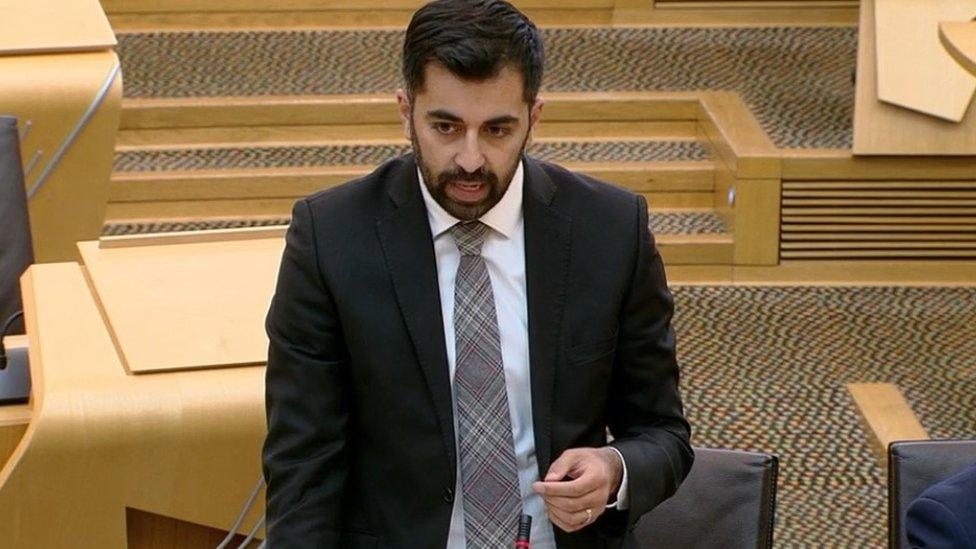
Humza Yousaf said the people of Glasgow had had enough
And the justice secretary told the Scottish Parliament that the right to parade peacefully was an important part of a democracy that values free speech.
He pointed to Article 11 of the European Convention on Human Rights, which protects the right to freedom of "peaceful assembly".
It says no restrictions should be placed on these rights except for public safety, preventing disorder or crime and for the protection of the rights and freedoms of others.
For this reason, total prohibition of marches or processions is very rare but, on Wednesday, Glasgow City Council's public processions committee made that decision.
It said it would prohibit all of this weekend's marches because of the disruption, disorder and heightened tensions that had proceeded them.
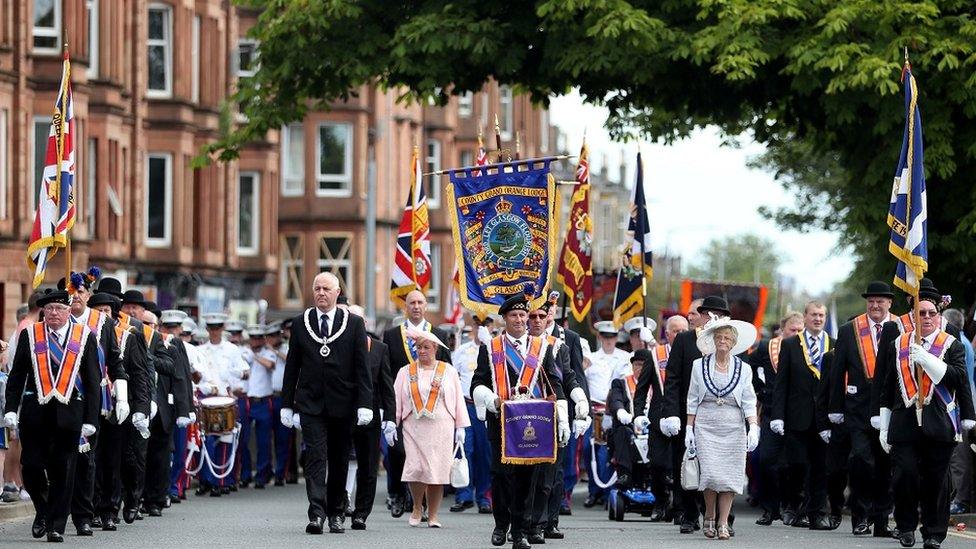
The Orange Order accounts for the highest number of marches in the city
The police told the council there had been calls on social media from Republicans to target Loyalist events and demands from Loyalists to protest against Republican parades.
Despite delivering its blanket ban, the council said it was clear that the law expected it to facilitate public processions - including those that some people oppose or find offensive.
However, it said the right to march had to be balanced against the rights of people and communities across Glasgow.


Data from Glasgow City Council shows that the number of marches linked to Loyalist and Republican organisations has been falling in recent years.
It shows that three Loyalist organisations - the Orange Order, Apprentice Boys of Derry and the Royal Black - accounted for more than 60% of all marches in the city over the past five years.

Who is marching in Glasgow?
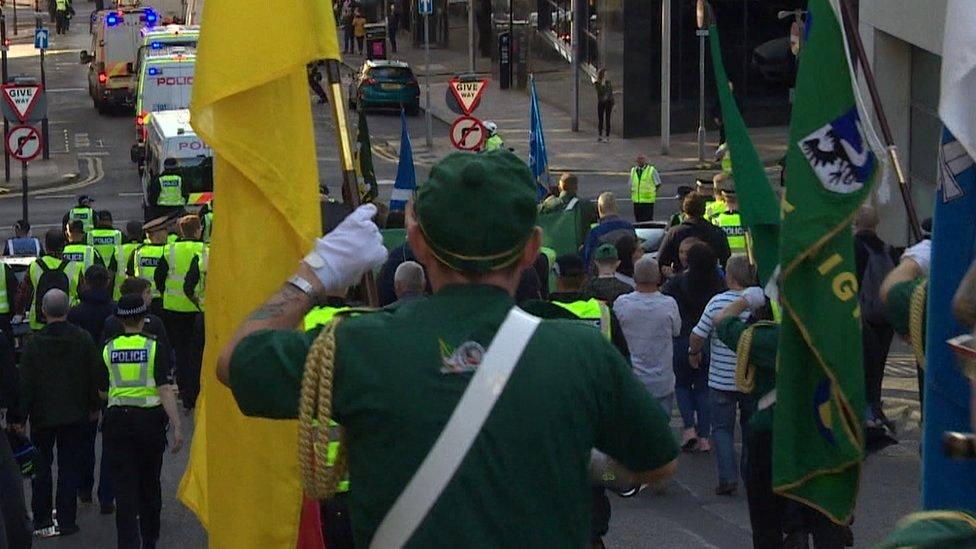
There were counter-demonstrations at an Irish republican march last week
Over the past five years, the majority of the processions were by Loyalist organisations such as the Orange Order (142 this year), the Apprentice Boys of Derry (20 this year), and the Royal Black institutions (20).
There have been 16 marches this year classed as Republican.
The pattern has remained similar over the period, with the Orange Order accounting for, by far, the most processions as well as the biggest fall in the number of marches.
Glasgow City Council's annual report on public processions says "the vast majority of processions pass without difficulty".
Where there is a significant concern for public safety, public order, damage to property or disruption to the life of the community, and no agreement can be reached with organisers, a meeting of the council's public processions committee is convened.
This only happened five times last year.
Three resulted in conditions being imposed amending the route and two led to an amended route being agreed at committee with the procession organiser.
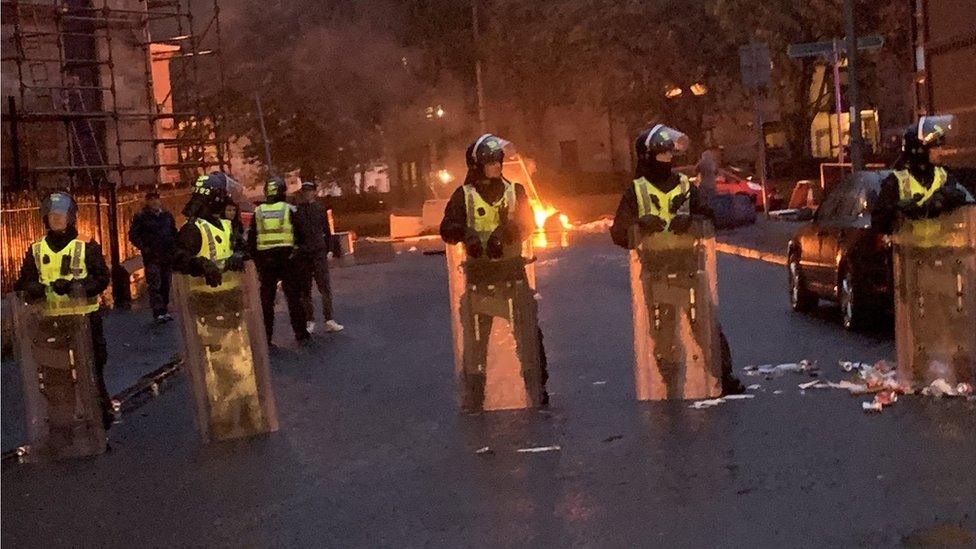
There was a full-scale riot in Govan two weeks ago
After the trouble in Govan two weeks ago, the council had considered calling a processions committee before the two Republican marches and Loyalist counter protest last weekend.
In the end it met procession organisers along with police officers and decided they could go ahead, with a massive police presence.
Police used a tactic known as "kettling" to ensure there were no clashes between marchers and their opponents. It requires a huge number of officers, brought in from all over Scotland.
BBC Scotland revealed that it cost £300,000 to provide about 500 specialist public order officers to the two demonstrations.
The Scottish Police Federation said that did not include other resources such as the force helicopter, mounted officers and conventional police.
Could there be court challenge?
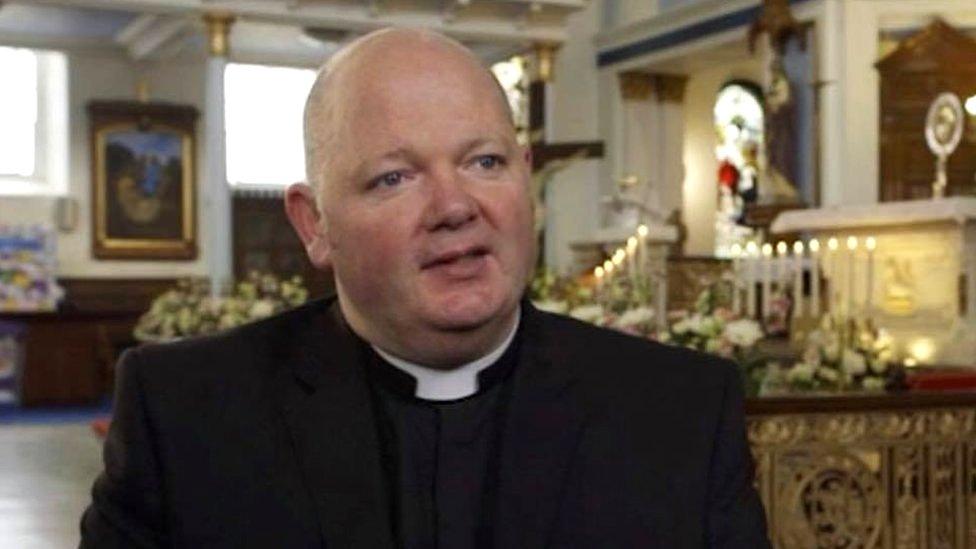
Canon Tom White was spat on and abused as as he spoke to parishioners following mass
Earlier this year, Loyalist groups called off four parades after they were ordered re-route them.
The marches were due to pass a church where a Catholic priest had been verbally abused and spat on during an Orange parade last year.
The decision was challenged in court but was upheld by a sheriff.
The lawyer for the four Loyalist groups told the court that all his clients were "seeking to do is exercise their rights to walk where they have walked for the last 15 to 20 years with largely no incidents".
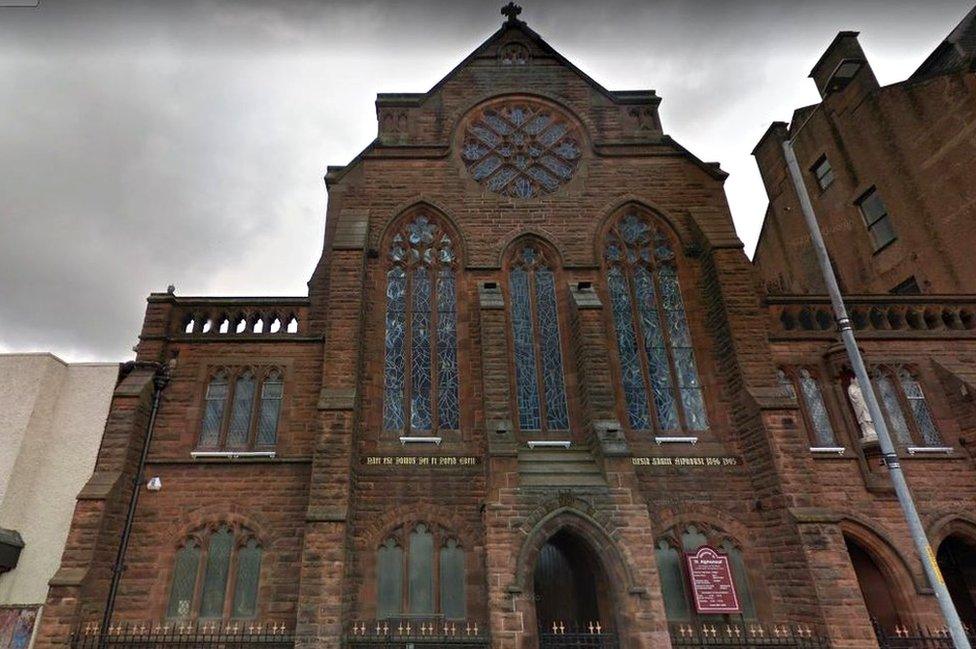
St Alphonsus Church is near the Barras market in the east end
The sheriff said it was a "difficult and anxious point" but he was satisfied that the council had the statutory power to re-route public processions.
He said the right to freedom of expression was "not an unrestricted right".
Glasgow City Council has called for a moratorium on marches which will give a "breathing space" for tensions to die down.
It says it can't ban all parades as that would infringe human rights. It wants the Scottish government to legislate.
First Minister Nicola Sturgeon said she was open-minded about that.
"It is part of our democracy to have the right to assemble and to march and to protest peacefully, she said.
"What is not part of our democracy is sectarian violence in any form. We continue to work closely with Glasgow City Council to make sure they get the support they need to apply the law as it is but also to be open-minded about any changes we need to see in the future."
- Published14 September 2019
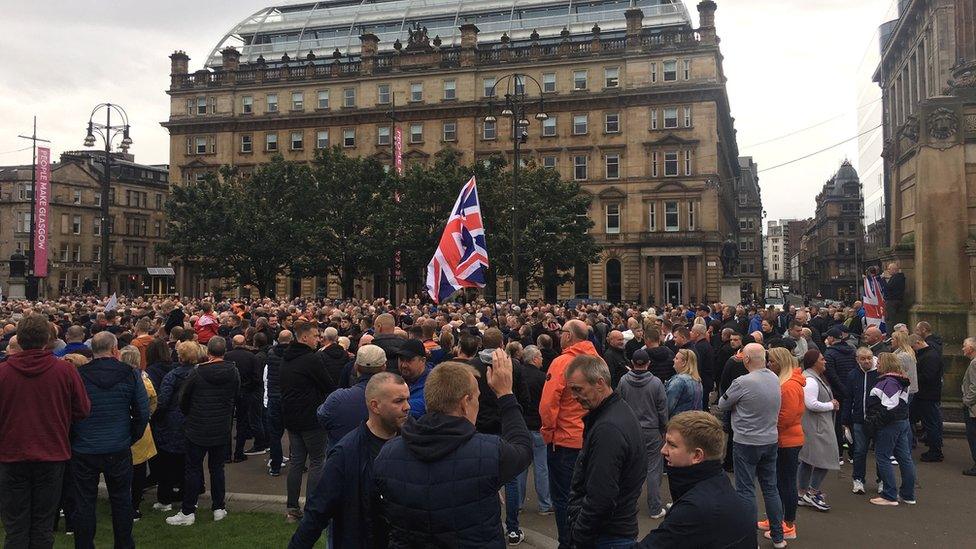
- Published12 September 2019

- Published11 September 2019

- Published10 September 2019

- Published8 September 2019

- Published4 September 2019
